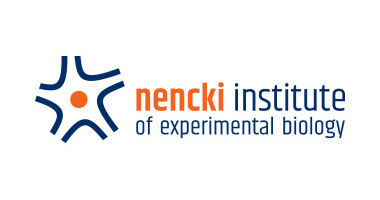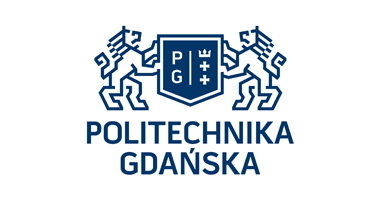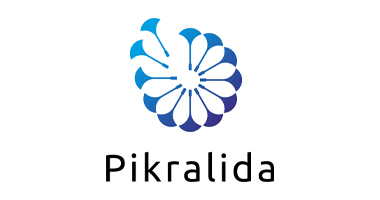
Aktualności z naszego X
Please join BRAINCITY & EMERALD Opening & NENCKI-BRAINCITY-DANDRITE Symposium at Nencki Institute
https://nencki.edu.pl/joint-braincity-emerald-opening-nencki-braincity-dandrite-symposium-2/
How do we maintain info in working memory? Using human single-neuron recordings, we show that items—whether in or out of attention—are maintained by persistent neural firing. Key evidence in the activity-silent vs. persistent activity debate! https://www.nature.com/articles/s41562-025-02235-0
We are pleased to announce that BRAINCITY received new grant from the Foundation for Polish Science (FNP) under the International Research Agendas Programme (IRAP FENG). Nearly PLN 30 million has been awarded for the period from July 1, 2025, to December 31, 2029. #FunduszeUE
CEL
Czym jest
BRAINCITY i
jaki był cel powstania centrum?
Celem BRAINCITY jest pogłębienie wiedzy na temat plastyczności neuronalnej i synaptycznej w celu zwalczania najbardziej wyniszczających i kosztownych chorób dotykających ludzi.
Neuroplastyczność to zdolność do strukturalnej i funkcjonalnej reorganizacji sieci neuronalnych w odpowiedzi na wyzwania środowiskowe. Poza procesami uczenia się i pamięci, które umożliwiają adaptację do zmieniającego się otoczenia, neuroplastyczność jest niezbędna do powrotu do zdrowia po różnych urazach i po przebyciu wybranych chorób. Plastyczność mózgu przejawia się na wielu poziomach układu nerwowego — od zjawisk molekularnych, takich jak zmiany ekspresji genów, aż po zachowanie. Na poziomie komórkowym plastyczność jest wspierana przez dynamiczne modyfikacje połączeń neuronalnych i pobudliwości komórek, które związane są ze zmianami molekularnymi w neuronach i komórkach glejowych. Synapsy są szczególnie podatne na dynamiczne zmiany i dlatego uważa się, że odgrywają kluczową rolę w plastyczności. Laboratoria BRAINCITY będą badać, w najnowocześniejszy i wzajemnie uzupełniający się sposób, zależną od plastyczności neuronalnej przebudowę sieci neuronowych, których nieprawidłowości zostały ostatnio rozpoznane jako podstawowe podłoże zaburzeń neurologicznych i psychiatrycznych (np. epilepsji, schizofrenii,
uzależnień, depresji oraz zaburzeń ze spektrum autyzmu). Badania obejmą szeroki zakres pytań i podejść — od plastyczności synaptycznej i jej mechanizmów molekularnych, po obrazowanie, wizualizację i manipulację sieciami neuronalnymi w skali całego mózgu. Naszym celem jest identyfikacja nowych celów diagnostycznych i terapeutycznych, a tym samym stymulowanie rozwoju nowych terapii. Nowatorskie działania BRAINCITY polegają na łączeniu interdyscyplinarnych badań podstawowych z kliniką, co pozwoli lepiej ukierunkować badania na istotne mechanizmy molekularne, natomiast współpraca z firmami pomoże odpowiedzieć na potrzeby i możliwości rynku. Tematy szczególnego zainteresowania BRAINCITY obejmują: genomikę i epigenomikę, neuronaukę kliniczną, obwody neuronalne, rozwój układu nerwowego oraz modelowanie chorób. Kierunki te będą badane przy użyciu takich podejść eksperymentalnych jak: organoidy mózgowe pochodzące z iPSC, bioobrazowanie, edycja genów in vivo i in vitro, bioinformatyka, badanie behawioru oraz screening lekowy.
BRAINCITY i Europejskie Laboratorium Biologii Molekularnej (EMBL) nawiązały długofalową, strategiczną współpracę. Strategiczne partnerstwo z EMBL opiera się na współpracy z wiodącymi instytucjami naukowymi w państwach członkowskich EMBL, wspólnie tworząc międzynarodową sieć ośrodków doskonałości naukowej, wraz z dostępnością zaawansowanych szkoleń EMBL. W szczególności, EMBL wspiera BRAINCITY w zakresie transferu wiedzy z zakresu neuronauki, kultury badawczej oraz nowoczesnego podejścia do zarządzania, w tym regularnej ewaluacji i internacjonalizacji niezależnych grup badawczych i wspierania praktyk transferu technologii.
Laboratorium Neurobiologii wraz z Pikralida Sp. z o. o. realizują projekt dofinansowany z Funduszy Europejskich pt. “Zastosowanie inhibitora metaloproteazy macierzowej do opracowania innowacyjnej metody terapeutycznej zapobiegania rozwojowi padaczki pourazowej i poudarowej”. Celem Projektu jest opracowanie przełomowego rozwiązania terapeutycznego, chroniącego przed rozwojem padaczki pourazowej i poudarowej, opartego o blokowanie procesu epileptogenzy poprzez modulowanie aktywności białka enzymatycznego, metaloproteazy macierzowej 9 (MMP-9). Projekt obejmuje m.in. opracowanie technologii wytwarzania substancji czynnej oraz badanego produktu leczniczego, badania potencjału terapeutycznego inhibitora MMP-9 w modelach zwierzęcych oraz wykonanie badań przedklinicznych i badania klinicznego fazy I.






